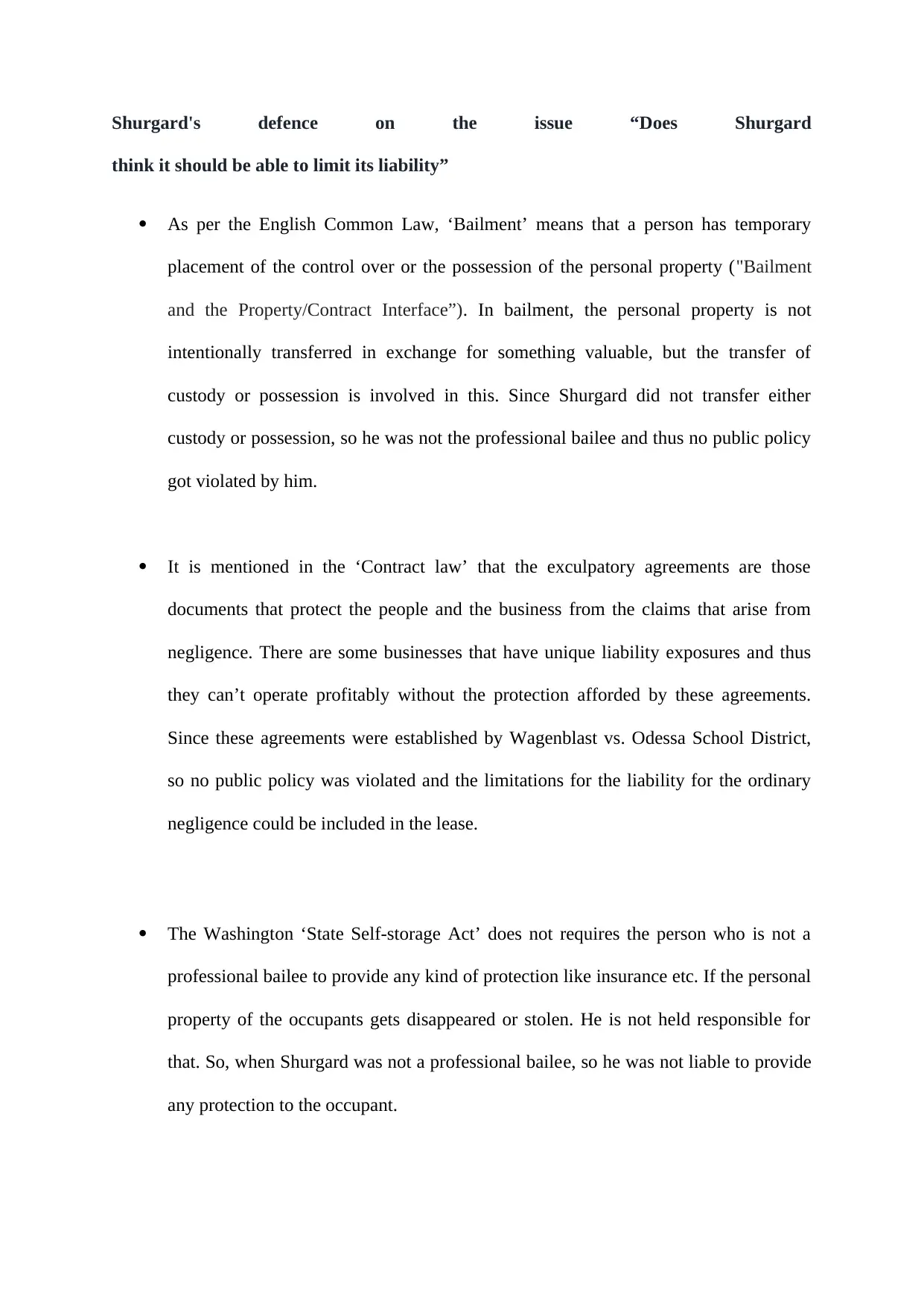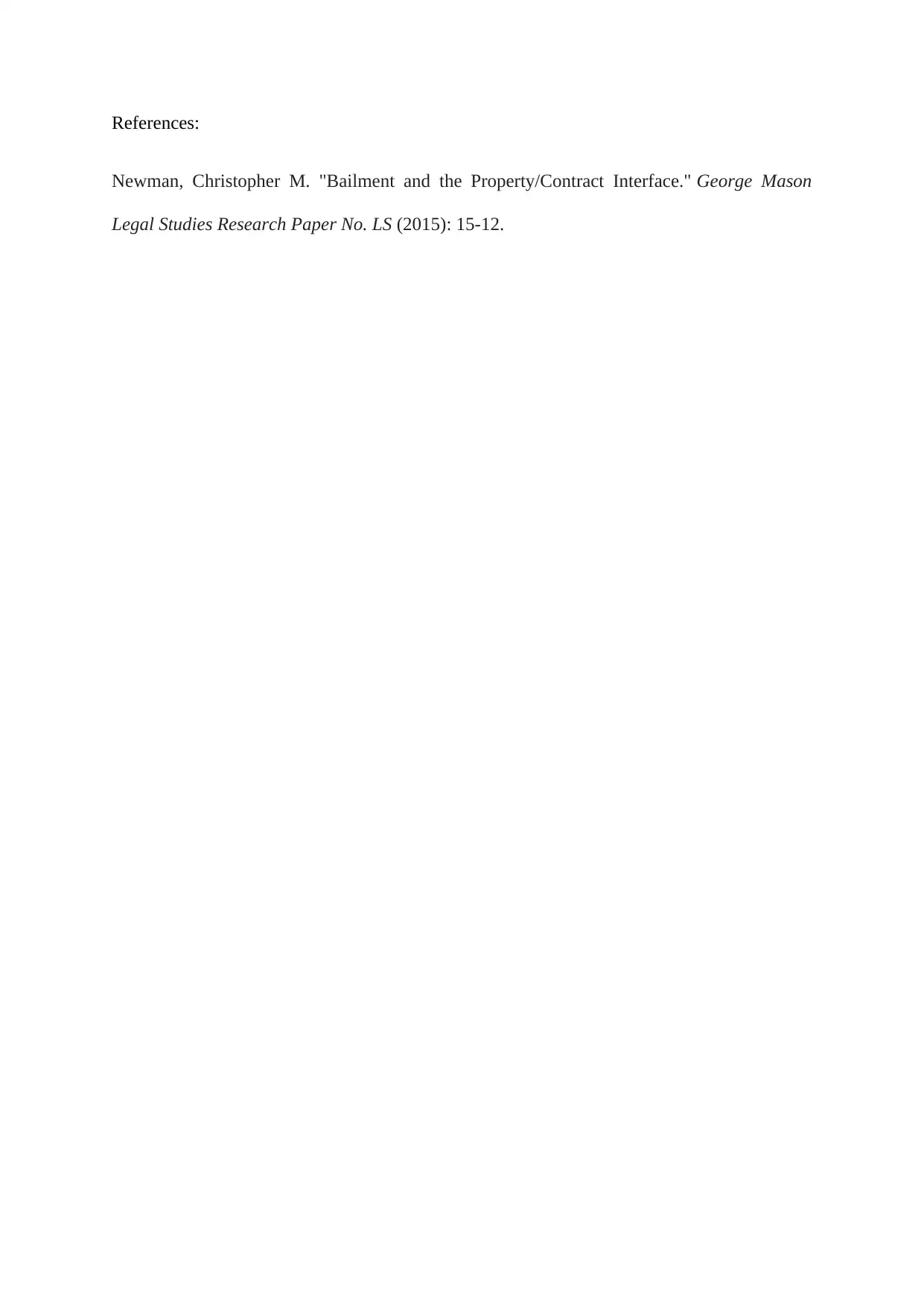Limiting Liability in Shurgard
VerifiedAdded on 2019/09/18
|2
|303
|365
Report
AI Summary
The assignment discusses whether Shurgard can limit its liability in a bailment scenario. According to English Common Law, a bailment occurs when a person has temporary control or possession of personal property without transferring ownership for something valuable. Since Shurgard did not transfer custody or possession, it was not a professional bailee and thus did not violate public policy. Additionally, the Washington State Self-Storage Act does not require non-professional bailees to provide protection against loss or theft, making Shurgard not liable for such occurrences.
Contribute Materials
Your contribution can guide someone’s learning journey. Share your
documents today.
1 out of 2
![[object Object]](/_next/static/media/star-bottom.7253800d.svg)







